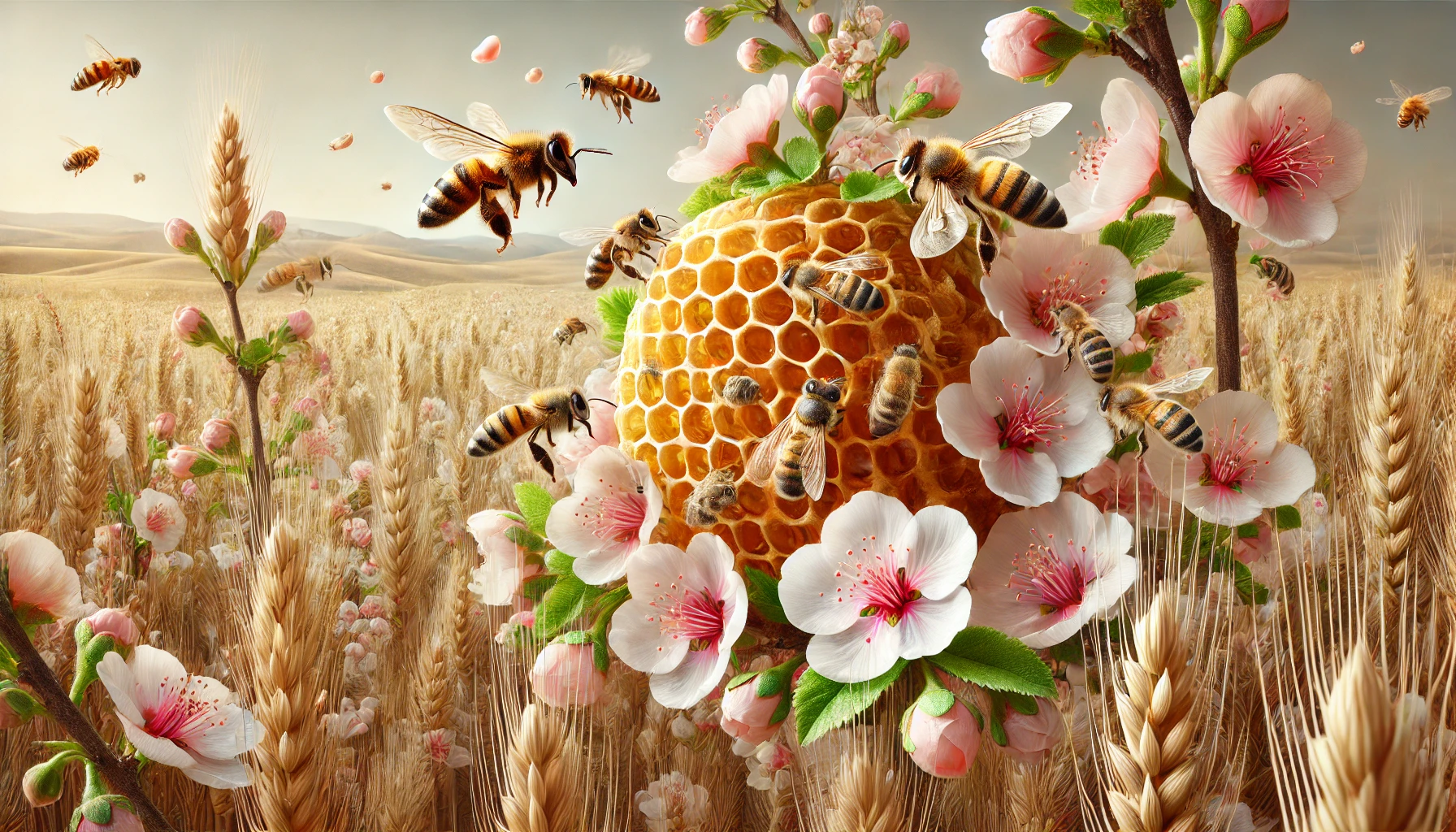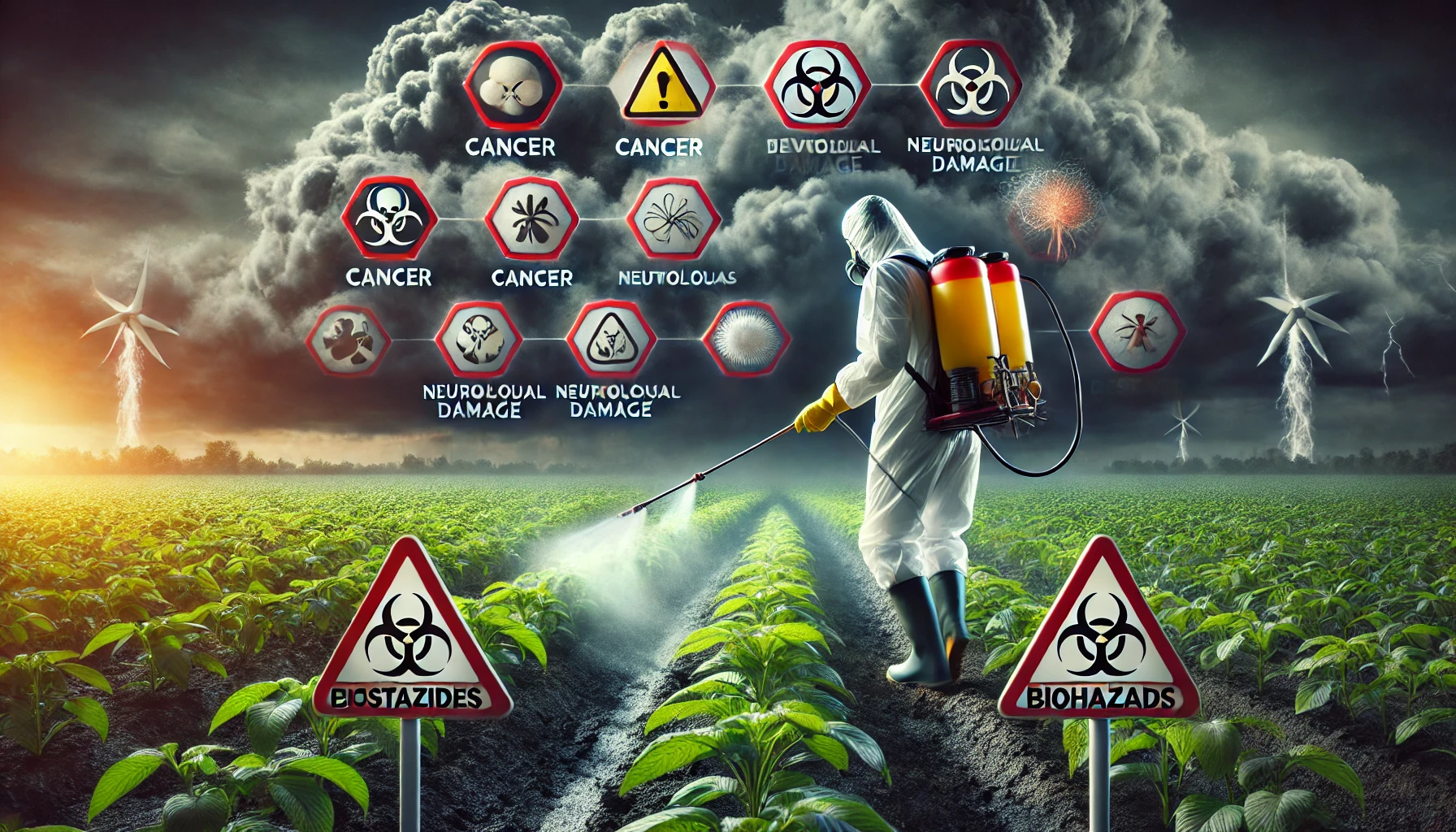
The use of pesticides in agriculture has been a topic of intense debate, particularly in recent years, as concerns about environmental impact, human health, and food safety grow. The question of whether synthetic pesticides or organic pesticides are safer for the environment is crucial for anyone interested in sustainable farming practices, organic produce, and ecological preservation.
In this comprehensive blog post, we will explore the differences between synthetic pesticides and organic pesticides, analyzing their environmental impact, health risks, and implications for modern agriculture. By examining key factors such as natural pesticides, organic farming, and the long-term effects of different pest management strategies, this article will help you make informed decisions about pesticide use and sustainability.
Understanding Pesticides
Pesticides are substances designed to either control pests, or eliminate insect pests, weeds, fungi, and other organisms that threaten crops. According to the U.S. Environmental Protection Agency (EPA), a pesticide can be any substance or mixture of substances intended for preventing, destroying, repelling, or mitigating pests. Pesticides are vital for ensuring food security but must be carefully managed to avoid negative environmental and health consequences.
Categories of Pesticides
Pesticides fall into two primary categories based on their origin:
-
Synthetic Pesticides: These are human-made chemicals created through industrial processes. Conventional pesticides, widely used in large-scale agriculture, belong to this category. They are often engineered to target specific pests but can have broad environmental impacts.
-
Organic Pesticides: Derived from natural materials like plants, minerals, or bacteria, organic pesticides are used primarily in organic farming, which prohibits synthetic chemicals. This distinction between natural and synthetic chemicals often leads to misconceptions about pesticide use in organic versus conventional systems.
Additionally, there are reduced risk pesticides, which are synthetic chemicals designed to be less highly toxic, and more environmentally benign compared to conventional pesticides.
Environmental Impact of Synthetic vs Organic Pesticides

Synthetic Pesticides: The Good and the Bad
Synthetic pesticides have been a staple of modern agriculture for decades due to their effectiveness in controlling a wide range of pests. However, their environmental impact varies depending on their chemical composition, persistence in the environment, and mode of action.
Environmental Risks of Synthetic Pesticides
-
Water Contamination: Synthetic pesticides can leach into waterways, contaminating streams, rivers, and groundwater. This runoff can harm aquatic ecosystems and disrupt food chains.
-
Harm to Non-Target Species: Many synthetic pesticides, particularly broad-spectrum insecticides, do not discriminate between pests and beneficial insects like bees, butterflies, and predatory beetles. This can lead to decreased biodiversity and harm pollinators essential for food crops.
-
Pesticide Resistance: Over time, pests can develop resistance to synthetic pesticides, forcing farmers to use stronger chemicals or higher doses. This contributes to a cycle of increased pesticide use and environmental degradation.
Despite these risks, not all synthetic pesticides are equally harmful. The Environmental Impact Quotient (EIQ) is a tool used to evaluate the various environmental harm and risks of different pesticides by considering factors like toxicity to wildlife, persistence in the environment, and potential for leaching.
Organic Pesticides: Are They Really Better?
Organic pesticides are often viewed as safer alternatives to synthetic chemicals, largely because they are derived from natural sources. However, organic pesticides are not without their own risks and limitations.
Environmental Benefits of Organic Pesticides
-
Faster Degradation: Most organic pesticides break down more quickly in the environment compared to synthetic alternatives. This reduces the risk of long-term contamination of soil and water.
-
Lower Toxicity to Non-Target Species: Organic pesticides generally pose less risk to beneficial insects, wildlife, and aquatic organisms, provided they are used according to best practices.
-
Less Risk of Resistance: Many organic pesticides, especially biopesticides, target pests through unique modes of action, reducing the likelihood that pests will develop resistance.
Environmental Risks of Organic Pesticides
Despite these benefits, some organic pesticides can still pose environmental risks:
-
Copper Sulfate, a widely used organic fungicide, can accumulate in the soil over time, leading to long-term toxicity and harm to soil microorganisms.
-
Pyrethrins, derived from chrysanthemum flowers, are toxic to bees and other pollinators when not applied carefully.
Case Study: Pyrethrins and Pollinator Decline

Pyrethrins, a commonly used organic pesticide, have been shown to have harmful effects on pollinators like bees. Exposure to pyrethrins can cause disorientation, paralysis, and death in bees, which are critical to pollinating many crops. This illustrates that any chemical process even natural pesticides must be used with caution to protect ecosystems and biodiversity.
Human Health Implications of Pesticide Use

Health Risks of Synthetic Pesticides
Synthetic pesticides have long been associated with various health risks, particularly for individuals who are frequently exposed to synthetic compounds, such as farmers and agricultural workers. Some of the health concerns include:
-
Cancer: Certain synthetic pesticides, such as glyphosate, have been classified as potential carcinogens. Prolonged exposure to these chemicals can increase the risk of developing cancer.
-
Neurological Disorders: Organophosphate pesticides, a class of synthetic chemicals, have been linked to neurological damage, especially in young children. Exposure can lead to developmental delays and cognitive impairments.
-
Endocrine Disruption: Some synthetic pesticides can interfere with the endocrine system, leading to reproductive health issues, developmental problems, and hormonal imbalances.
Although these risks are concerning, regulatory agencies like the EPA enforce strict guidelines on the use of synthetic pesticides. Pesticide labels provide instructions for safe handling, application, and disposal to minimize human exposure.
Are Organic Pesticides Safer for Human Health?
Organic pesticides are generally considered safer for human health due to their natural origins and lower toxicity levels. However, this does not mean they are completely risk-free:
-
Neem Oil, a popular organic pesticide, can cause skin irritation and allergic reactions in sensitive individuals, especially when used in high concentrations.
-
Rotenone, an organic pesticide once widely used in organic farming, was linked to Parkinson’s disease in humans and has since been phased out in many countries.
While organic farmers and home gardeners prefer organic pesticides for their perceived safety, it is essential to use these substances properly and follow safety guidelines to avoid unintended health risks.
Organic Agriculture and Pesticide Use
The principles of organic agriculture focus on sustainability, biodiversity, and ecological balance. The demand for organic food has grown significantly as consumers seek products perceived to be healthier and more environmentally friendly. Organic farming practices aim to reduce the use of synthetic pesticides and fertilizers, relying instead on natural processes and materials. However, the effectiveness and sustainability of these organic production practices are often debated, with some arguing that organic management may not always be more sustainable than conventional methods.
Principles of Organic Farming
Organic agriculture is based on ecological principles that emphasize biodiversity, soil health, crop protection, and the use of natural substances. Certified organic farms must comply with strict regulations that prohibit the use of most synthetic pesticides and fertilizers. The core principles of organic farming include:
-
Enhancing Biodiversity: Organic farms promote biodiversity by using crop rotations, planting cover crops, and fostering habitats for beneficial insects and wildlife.
-
Soil Health: Organic farmers use compost, manure, and green manure to improve soil fertility and encourage soil biological activity. This reduces the need for synthetic fertilizers and strengthens plants’ resistance to pests.
-
Integrated Pest Management (IPM): IPM strategies are central to organic farming, combining cultural, biological, and mechanical controls to prevent pest problems before they require chemical intervention.
Challenges of Organic Pesticide Use
While organic farmers rely on a variety of pest management techniques, they still use organic pesticides when necessary. However, organic pesticides often present challenges in terms of efficacy and cost:
-
Lower Potency: Organic pesticides may not be as effective as synthetic alternatives, requiring multiple applications to achieve the desired level of pest control. This can increase labor costs and complicate pest management efforts.
-
Higher Costs: Organic pesticides are often more expensive than synthetic pesticides due to the costs of production, certification, and application.
-
Potential Environmental Persistence: Some organic pesticides, such as copper sulfate, can build up in the environment, leading to long-term soil toxicity.
Case Study: Copper Sulfate in Organic Vineyards

Copper sulfate, a widely used organic fungicide, is effective at controlling fungal diseases in crops like grapes. However, repeated use of copper sulfate can lead to copper accumulation in the soil, which can harm beneficial soil organisms and reduce soil fertility over time. Organic farmers must carefully manage the use of copper-based pesticides to prevent negative environmental impacts.
Synthetic Pesticides: Efficacy, Environmental Impact, and Health Risks
Efficacy of Synthetic Pesticides
Synthetic pesticides are highly effective at controlling a wide variety of pests, making them a critical component of conventional agriculture. Broad-spectrum insecticides, for example, are designed to kill a wide range of insects, reducing crop losses and ensuring food security. However, this effectiveness comes with trade-offs:
-
Environmental Persistence: Many synthetic pesticides are designed to persist in the environment for extended periods, providing long-term protection against pests. However, this persistence also increases the risk of environmental contamination and harm to non-target species.
-
Pesticide Resistance: Overuse of synthetic pesticides can lead to the development of pesticide-resistant pests, which requires the use of stronger chemicals and creates a cycle of dependency on synthetic products.
Environmental and Health Risks of Synthetic Pesticides
While synthetic pesticides are effective, their environmental and health risks cannot be ignored:
-
Aquatic Toxicity: Synthetic pesticides can contaminate water bodies, leading to fish kills and damage to aquatic ecosystems.
-
Human Health Concerns: Prolonged exposure to synthetic pesticides has been linked
to serious health issues, including cancer, neurological disorders, and endocrine disruption.
Case Study: Neonicotinoids and Pollinator Decline
Neonicotinoids, a class of synthetic pesticides, have been implicated in the decline of pollinators like bees. Neonicotinoids disrupt the nervous systems of insects, leading to paralysis and death. Bees exposed to these chemicals exhibit disorientation and difficulty foraging, contributing to colony collapse disorder. In response, the European Union has banned certain neonicotinoids to protect pollinators, though these pesticides are still in use in some parts of the world.
Comparing Organic and Synthetic Pesticides: A Balanced Perspective

Advantages of Organic Pesticides
-
Natural Origins: Organic pesticides are derived from natural materials like plants, bacteria, and minerals, making them generally less harmful to the environment.
-
Reduced Risk of Resistance: Organic pesticides often work through complex biological mechanisms, which makes it harder for pests to develop resistance.
-
Faster Breakdown: Organic pesticides typically degrade more quickly in the environment, reducing the risk of long-term contamination.
Advantages of Synthetic Pesticides
-
Higher Efficacy: Synthetic pesticides are often more effective at controlling a broader range of pests, reducing the risk of crop losses and boosting crop yields.
-
Cost-Effectiveness: Synthetic pesticides are usually less expensive and require fewer applications than organic alternatives, making them more accessible for large-scale farmers.
-
Longer-Lasting Protection: Synthetic pesticides provide extended protection against pests, reducing the need for frequent reapplication.
Key Takeaways
Both synthetic pesticides and organic pesticides have their advantages and drawbacks. Organic pesticides offer a more environmentally friendly approach, but they may be less effective and more expensive than synthetic pesticide alternatives. Conventional farmers may rely on synthetic pesticides for their efficacy and cost-effectiveness, but these come with greater environmental and health risks.
To manage pests and minimize the environmental impact of pesticide use, farmers and home gardeners should prioritize Integrated Pest Management (IPM), combining preventive measures, biological controls, and judicious pesticide use.
Ultimately, the choice between synthetic and organic pesticides depends on factors like the type of crop, the severity of pest problems, and the goals of the farming operation. A balanced approach that considers environmental sustainability, human health, and agricultural productivity is essential for building a more sustainable food system
Conclusion
The debate between synthetic pesticides and organic pesticides is complex, with no clear-cut answer as to which is universally safer for the environment or human health. Both types of pesticides have their own distinct advantages and limitations, and the best option depends on the context in which they are used.
Organic pesticides, derived from natural sources, tend to be more environmentally friendly, decompose faster, and are less likely to affect non-target organisms. They are a preferred option for those prioritizing sustainability and minimal environmental impact. However, they are not entirely free from risks—certain organic pesticides can still harm beneficial species and may need frequent applications due to lower potency.
In contrast, synthetic pesticides are highly effective, providing powerful solutions to pest problems in natural world, often with fewer applications and at a lower cost. But their prolonged environmental persistence and potential harm to human health and biodiversity raise serious concerns. Issues such as water contamination, pesticide resistance, and the impact on beneficial insects like bees require careful management.
The best approach is a balanced use of both types of pesticides, integrated into an Integrated Pest Management (IPM) system. This strategy emphasizes the use of biological controls, crop rotation, and judicious use of both organic and synthetic pesticides to minimize negative impacts while maintaining crop productivity.
Ultimately, the choice between synthetic and organic pesticides should be based on careful consideration of environmental impact, health risks, and agricultural needs. By promoting informed decisions and sustainable farming practices, we can move toward a more environmentally sound and healthy food system for future generations.
FAQs
1. Are organic pesticides completely safe for the environment?
No, organic pesticides are not entirely free from environmental risks. While they are derived from natural sources and often degrade faster than synthetic pesticides, some organic pesticides, like copper sulfate or pyrethrins, can still harm beneficial organisms such as bees or accumulate in the soil over time. Proper application and integrated pest management strategies with organic regulations are essential to minimize their negative impacts.
2. Why do some organic farmers use more pesticides than conventional farmers?
Organic farmers may use more pesticide applications because organic pesticides are generally less potent and require multiple treatments to achieve effective pest control. Additionally, organic farmers have fewer pesticide options since they cannot use most synthetic chemicals. As a result, organic pesticides are applied more frequently, though they often break down faster and pose fewer long-term environmental risks.
3. What is Integrated Pest Management (IPM), and how does it help reduce pesticide use?
Integrated Pest Management (IPM) is an approach that combines different pest control methods to minimize the reliance on pesticides. IPM emphasizes preventive measures such as crop rotation, habitat manipulation, and the use of biological controls like beneficial insects. Pesticides—whether organic or synthetic—are only used as a last resort when other methods fail. This approach reduces the environmental impact of pesticide use and helps prevent issues like pesticide resistance.

Hi there! I’m at work browsing your blog from my
new iphone 4! Just wanted to say I love reading your blog and look
forward to all your posts! Carry on the superb work!